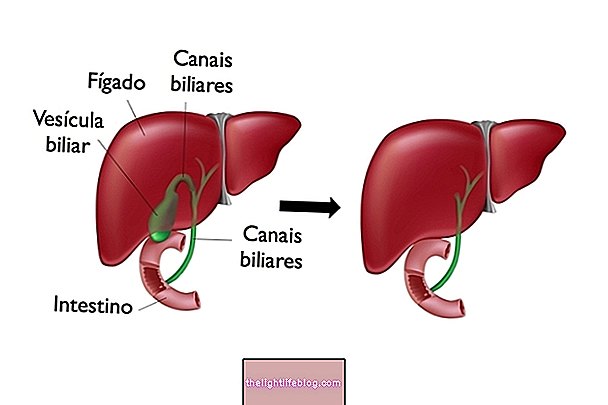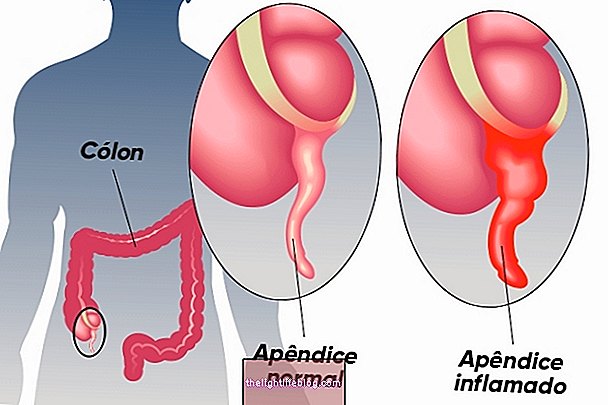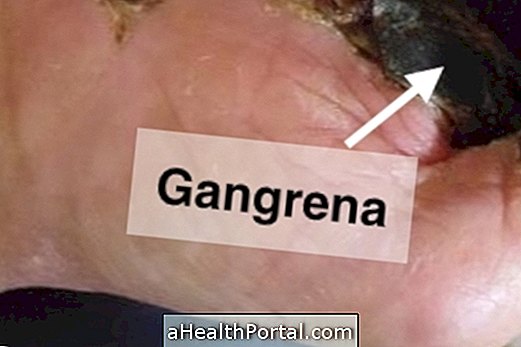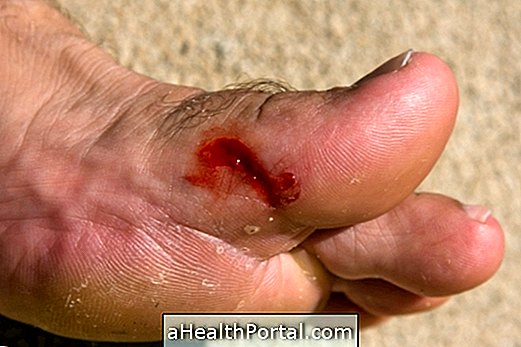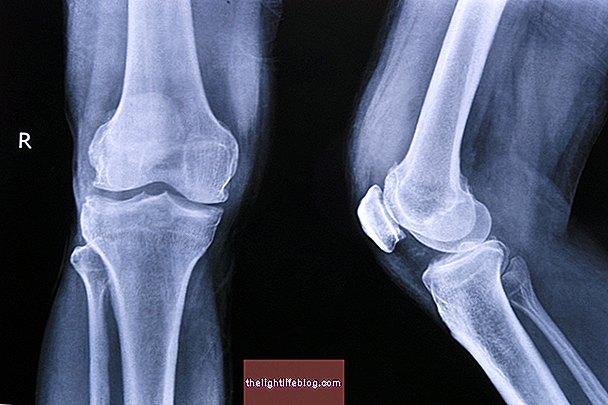Macrocephaly is a rare condition characterized by the child's head size larger than normal for sex and age and which can be diagnosed by measuring the size of the head, also called head circumference or CP, and plotted on a graph and accompanied measurements during childcare consultations, from birth to 2 years of age.
In some cases, macrocephaly does not represent a health risk, being considered normal, however, in other cases, especially when cerebrospinal fluid accumulation, CSF, is observed, there may be delayed psychomotor development, abnormal brain size, mental retardation and seizures.
The diagnosis of macrocephaly is made as the child develops, measuring the head circumference at each visit with the pediatrician. In addition, depending on the relationship between CP, age, sex and development of the baby, the doctor may indicate the performance of imaging exams to check for the presence of cysts, tumors or CSF accumulation, indicating the most appropriate treatment if necessary .

Main causes
Macrocephaly can have several causes, most of which are linked to genetic factors, resulting in metabolic diseases or malformations. However, during pregnancy the woman can also be exposed to several situations that can compromise the baby's development and lead to macrocephaly. Thus, some of the main causes of macrocephaly are:
- Infections such as toxoplasmosis, rubella, syphilis and cytomegalovirus infection;
- Hypoxia;
- Vascular malformation;
- Presence of tumors, cysts or congenital abscesses;
- Lead poisoning;
- Metabolic diseases such as lipidosis, histiocytosis and mucopolysaccharidosis;
- Neurofibromatosis;
- Tuberous sclerosis.
In addition, macrocephaly can happen as a consequence of bone diseases, especially between 6 months and 2 years, such as osteoporosis, hypophosphatemia, imperfect osteogenesis and rickets, which is a disease characterized by the absence of vitamin D, which is the vitamin responsible for absorption of calcium in the intestine and deposition in the bones. Learn more about rickets.
Signs and symptoms of macrocephaly
The main sign of macrocephaly is the head larger than normal for the child's age and sex, however other signs and symptoms may also appear according to the cause of macrocephaly, the main ones being:
- Delay in psychomotor development;
- Physical disability;
- Mental retardation;
- Convulsions;
- Hemiparesis, which is muscle weakness or paralysis on one side;
- Changes in the shape of the skull;
- Neurological changes;
- Headache;
- Psychological changes.
The presence of any of these signs or symptoms can be indicative of macrocephaly, and it is important to go to the pediatrician to have the CP measured. In addition to measuring CP and relating to the child's development, sex and age, the pediatrician also evaluates the signs and symptoms, because some are related only to a certain type of macrocephaly, and can start treatment more quickly. The pediatrician can also request the performance of imaging tests, such as computed tomography, radiography and magnetic resonance.
Macrocephaly can be identified even in the prenatal period through the performance of obstetric ultrasound, where CP is measured, and in this way it is possible to guide women and their families at an early stage.
How the treatment is done
When macrocephaly is physiological, that is, when it does not represent a risk to the child's health, it is not necessary to initiate specific treatment, with the child's development only being monitored. However, when hydrocephalus, which is the excessive accumulation of fluid in the skull, is also seen, surgery may be necessary to drain the fluid. Understand how hydrocephalus treatment is done.
In addition to the treatment may vary according to the cause of macrocephaly, it may also vary according to the signs and symptoms presented by the child and, therefore, psychotherapy, physiotherapy and speech therapy sessions may be recommended. Changes in diet and the use of some medications may also be indicated, especially when the child has seizures.
Was this information helpful?
Yes No
Your opinion is important! Write here how we can improve our text:
Any questions? Click here to be answered.
Email in which you want to receive a reply:
Check the confirmation email we sent you.
Your name:
Reason for visit:
--- Choose your reason --- DiseaseLive betterHelp another personGain knowledge
Are you a health professional?
NoMedicalPharmaceuticalsNurseNutritionistBiomedicalPhysiotherapistBeauticianOther
Bibliography
- PORTO HOSPITAL CENTER. Macrocephaly: performance protocol. 2012. Available at:. Accessed on 25 Feb 2020


